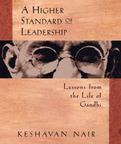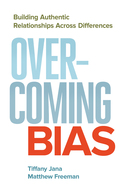o How to embody the values of service, truth, and personal responsibility in leadership roles
o Insights about management, leadership, and purpose from a successful businessman and perceptive student of Gandhi's life and writings
Though Gandhi is one of the most written-about figures of the twentieth century, this is the first book to apply lessons from his life to the practical tasks faced by contemporary leaders-from corporate managers and executives to government administrators, nonprofit professionals, educators, and others.
In times shaped by colonialism, dictatorships, and two World Wars, Gandhi demonstrated that an idealist could also be a practical and effective leader. In our times of increasing cynicism about the quality of leadership we can expect and aspire to, Keshavan Nair reminds us that, "We are all engaged in leadership, in practicing it and selecting those who will lead." In A Higher Standard of Leadership, he offers a pragmatic guide based on the concepts Gandhi exemplified:
o leadership is service, not a path to power and privilege;
o effective goals, decisions, and strategies can be guided by moral principles;
o a single standard of conduct, based on absolute values, should be maintained in both public and private life.
A lifelong student of Gandhi's teachings and a businessman with more than 25 years of experience in corporate and governmental leadership development, Nair is uniquely positioned to bridge the two worlds. Using illustrative examples from Gandhi's life and writings, he identifies commitments-to conscience, openness, service, values, and reduced attachments-and describes the courage and determination necessary to work and lead by them. In simple and direct language, he explores the process of making decisions, setting goals, and implementing actions guided by the spirit of service and commitment to values that is essential to the realization of a higher standard of leadership in our workplaces and communities.
- Shows America's economic system to be at odds with its social and political goals and proposes a system designed to increase personal freedom
- Questions the most basic assumptions that drive our economic system, and argues that its entire structure must be challenged
The second edition includes new examples, tools, and tips for using AI to create an enduring capacity for positive change, along with a totally new chapter on award-winning community applications of Appreciative Inquiry.
• New edition of the most authoritative, comprehensive, and practical guide to large-scale positive change
• Revised throughout, with new business and nonprofit examples and tools and a new chapter on community-based applications of Appreciative Inquiry (AI)
• Written by two pioneering AI thought leaders
The Power of Appreciative Inquiry describes the wildly popular approach to organizational change that dramatically improves performance by engaging people to study, discuss, and build upon what’s working, rather than trying to fix what’s not. Whitney and Trosten-Bloom provide a menu of eight results-oriented approaches to AI, along with case examples from a wide range of organizations to illustrate Appreciative Inquiry in action. A how-to book, this is the most authoritative and accessible guide to the newest ideas and practices in the field of Appreciative Inquiry since its inception in 1985.
To write the second edition, Whitney and Trosten-Bloom conducted an appreciative inquiry with first edition readers. At the urging of these readers, this edition includes a totally new chapter on community applications of Appreciative Inquiry, along with new examples, tools, and tips for using AI to create an enduring capacity for positive change.
2012
2016
Everybody's biased. The truth is, we all harbor unconscious assumptions that can get in the way of our good intentions and keep us from building authentic relationships with people different from ourselves. Tiffany Jana and Matthew Freeman use vivid stories and fun (yes, fun!) exercises and activities to help us reflect on our personal experiences and uncover how our hidden biases are formed. By becoming more self-aware, we can control knee-jerk reactions, conquer fears of the unknown, and prevail over closed-mindedness. In the end, Jana and Freeman's central message is that you are not the problem—but you can be the solution.


















